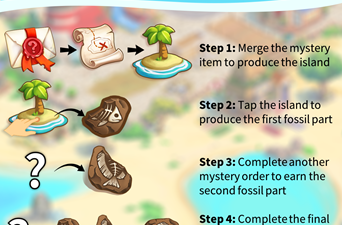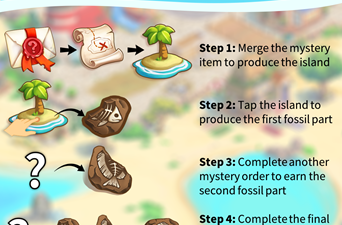The allure of travel beckons, promising adventure, relaxation, and new experiences. But what happens when the unexpected strikes, derailing your meticulously planned journey? Trip insurance emerges as a crucial safety net, offering financial protection and peace of mind against unforeseen events that could otherwise turn your dream vacation into a nightmare.
From medical emergencies to flight cancellations and lost luggage, trip insurance provides a comprehensive shield against a wide range of travel risks. It empowers travelers to embrace the unknown with confidence, knowing that they have a safety net in place to mitigate potential financial losses and disruptions.
What is Trip Insurance?
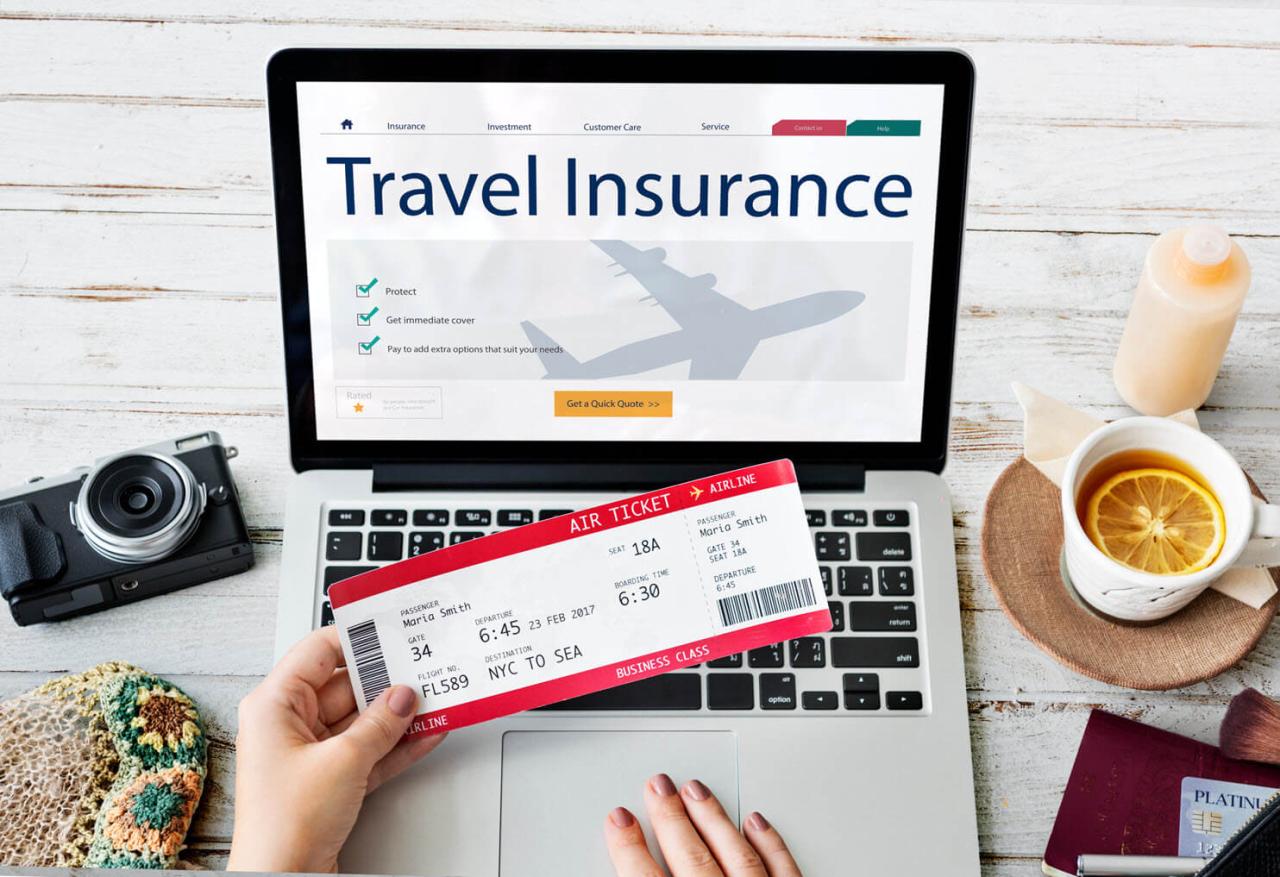
Trip insurance is a type of insurance that helps protect travelers against unexpected events that can disrupt their travel plans. It can cover various expenses related to medical emergencies, trip cancellations, baggage loss, and travel delays.
Types of Trip Insurance Coverage
Trip insurance offers various types of coverage to cater to different travel needs and risks.
- Medical Coverage: This covers medical expenses incurred during a trip due to accidents, illnesses, or emergencies. It can include hospitalization costs, medical evacuations, and emergency medical transportation.
- Cancellation Coverage: This provides reimbursement for non-refundable trip expenses if you need to cancel your trip due to covered reasons, such as illness, injury, death in the family, or natural disasters.
- Baggage Coverage: This covers the cost of lost, stolen, or damaged baggage during your trip. It may also include coverage for essential personal items, such as clothing, electronics, and medications.
- Travel Delay Coverage: This provides financial assistance for expenses incurred due to unexpected delays in your travel plans, such as flight cancellations, weather disruptions, or mechanical issues.
Scenarios Where Trip Insurance is Beneficial
Trip insurance can be valuable in various situations, offering financial protection and peace of mind.
- Medical Emergencies: If you experience a medical emergency during your trip, trip insurance can help cover the costs of treatment, hospitalization, and even medical evacuation back home.
- Trip Cancellations: If you need to cancel your trip due to unforeseen circumstances, trip insurance can reimburse you for non-refundable expenses. This can be particularly helpful if you face a family emergency, illness, or job loss.
- Baggage Loss or Damage: If your baggage is lost or damaged during your trip, trip insurance can help replace your belongings or compensate for the loss.
- Travel Delays: In case of travel delays due to weather, mechanical issues, or other unforeseen circumstances, trip insurance can help cover additional expenses, such as accommodation, meals, and transportation.
Why is Trip Insurance Important?
Traveling can be an exciting and enriching experience, but it can also be unpredictable. Unexpected events can arise, turning a dream vacation into a financial nightmare. Trip insurance acts as a safety net, protecting travelers from unforeseen circumstances and minimizing the financial impact of such events.
Financial Consequences of Unexpected Events
Unexpected events during travel can lead to significant financial consequences. These events can include:
- Medical Emergencies: Medical expenses abroad can be exorbitant, even for minor ailments. Without insurance, travelers may face hefty bills that can drain their savings and cause financial distress.
- Flight Cancellations or Delays: Airlines sometimes cancel flights or experience delays due to weather, mechanical issues, or other unforeseen circumstances. This can result in lost time, additional expenses for accommodation and meals, and missed travel plans.
- Lost or Damaged Luggage: Lost or damaged luggage can disrupt travel plans and lead to the replacement cost of essential items. Travelers may need to purchase new clothes, toiletries, and other necessities, adding to their expenses.
- Natural Disasters: Hurricanes, earthquakes, and other natural disasters can disrupt travel plans and lead to evacuation, accommodation costs, and potential medical expenses.
Real-Life Examples
Real-life examples highlight the importance of trip insurance:
“A couple traveling to Europe had their flight canceled due to a volcanic eruption. Without trip insurance, they had to pay for new flights, accommodation, and meals, resulting in significant financial losses.”
“A family traveling to the Caribbean experienced a medical emergency when their child fell ill. Trip insurance covered their medical expenses, ensuring they received the necessary treatment without facing overwhelming financial burden.”
Benefits of Trip Insurance
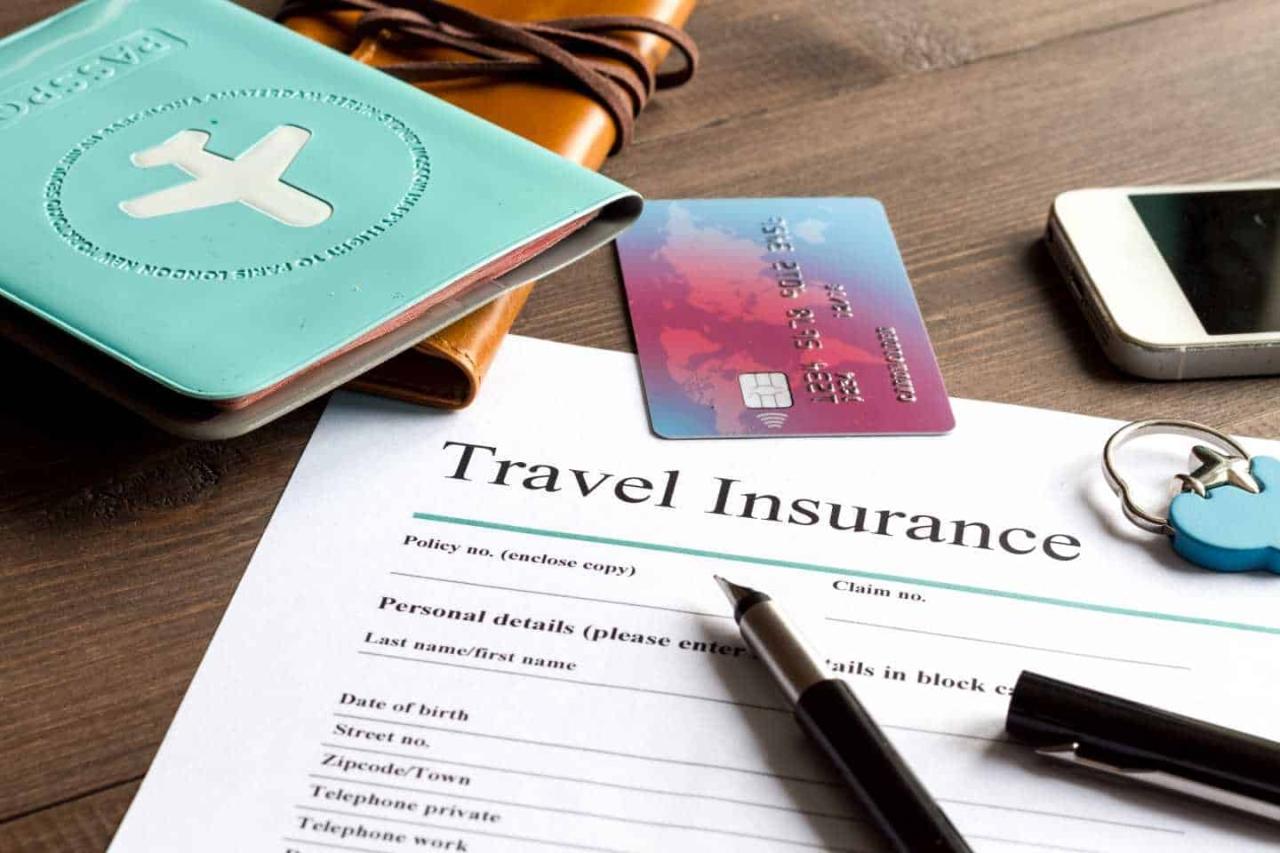
Trip insurance offers a safety net for travelers, providing peace of mind and financial protection against unexpected events. It acts as a shield, safeguarding your investment in your trip and ensuring you can enjoy your vacation without the worry of potential financial burdens.
Financial Protection for Unexpected Events
Trip insurance acts as a financial buffer, covering unexpected expenses that could derail your travel plans. It provides peace of mind knowing that you have a safety net in place should unforeseen circumstances arise.
- Medical Emergencies: Trip insurance can cover the costs of medical emergencies while you are traveling, including hospital stays, doctor visits, and emergency medical evacuation. For example, imagine you are on a hiking trip in a remote area and suffer a serious injury. Trip insurance could cover the costs of transporting you to a medical facility and receiving necessary treatment.
- Trip Cancellations: Life happens, and sometimes unforeseen circumstances can force you to cancel your trip. Trip insurance can reimburse you for non-refundable expenses such as flights, hotels, and tours. For instance, if you are diagnosed with a serious illness before your trip, trip insurance can help you recoup some of the financial losses.
- Lost or Damaged Luggage: Lost or damaged luggage can be a stressful experience, especially if you are traveling with essential items. Trip insurance can cover the costs of replacing lost or damaged luggage, ensuring you have the essentials you need while traveling. For example, if your luggage is lost in transit, trip insurance can help you purchase replacement clothing and toiletries.
Potential Savings
Trip insurance can actually save you money in the long run by covering unexpected expenses that could otherwise drain your travel budget.
- Avoiding Unexpected Costs: Trip insurance can help you avoid unexpected costs associated with medical emergencies, trip cancellations, or lost luggage. For example, if you experience a medical emergency while traveling, trip insurance can cover the costs of treatment and transportation, preventing you from incurring significant out-of-pocket expenses.
- Reimbursement for Non-Refundable Expenses: Trip insurance can reimburse you for non-refundable expenses, such as flights, hotels, and tours, in the event of a trip cancellation. This can help you recover some of the financial losses you might have incurred.
- Peace of Mind: Having trip insurance can provide peace of mind, knowing that you are protected against unexpected events. This peace of mind can allow you to relax and enjoy your trip without the constant worry of potential financial burdens.
Factors to Consider When Choosing Trip Insurance
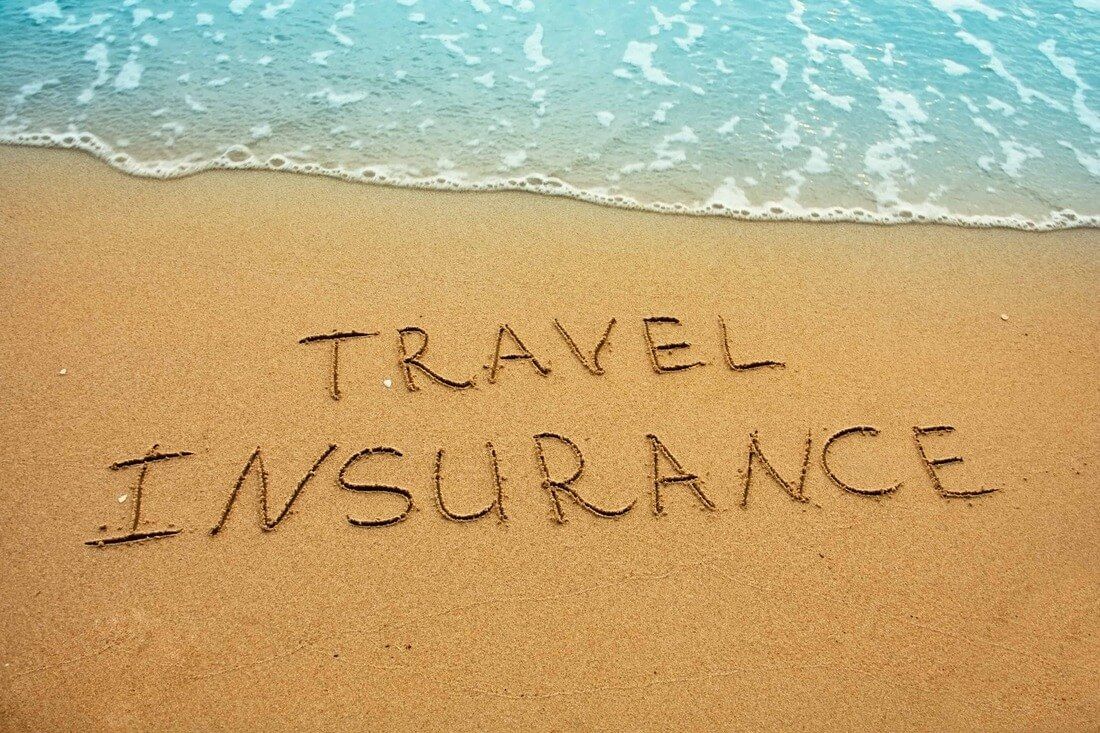
Choosing the right trip insurance plan can be a daunting task, given the vast array of options available. The key lies in comparing different insurance plans and providers, ensuring you select a policy that best meets your individual needs and budget.
Comparing Insurance Plans and Providers
It is crucial to compare different insurance plans and providers before making a decision. Each plan offers unique coverage features, varying in terms of benefits, premiums, and exclusions. By comparing multiple options, you can identify the best value for your money.
Coverage Amounts
Coverage amounts are crucial for determining the extent of financial protection you receive in case of unexpected events. Consider the following:
- Medical Expenses: This covers medical costs incurred during your trip, including emergency medical evacuation and hospital stays. It is essential to choose a plan with adequate coverage, especially if traveling to destinations with high medical costs.
- Trip Cancellation: This covers non-refundable trip expenses if you need to cancel your trip due to unforeseen circumstances, such as illness, injury, or family emergencies. The coverage amount should be sufficient to cover your total trip expenses.
- Baggage Loss: This covers the loss or damage of your baggage during your trip. Ensure the coverage amount is enough to replace your belongings, including electronics, clothing, and other essentials.
- Trip Interruption: This covers additional expenses incurred if you need to cut your trip short due to unexpected events, such as illness or family emergencies. The coverage amount should be enough to cover the cost of extending your stay, returning home, and any other related expenses.
Exclusions
Exclusions are specific events or circumstances that are not covered by your trip insurance policy. Carefully review the exclusions section to understand what is not covered. Some common exclusions include:
- Pre-existing medical conditions
- Acts of war or terrorism
- Natural disasters
- Activities deemed risky or dangerous
Understanding these exclusions is crucial to ensure that you are adequately protected during your trip.
Premiums
The premium is the cost of your trip insurance policy. It is typically calculated based on factors such as your destination, age, length of trip, and the coverage amount you choose.
- Compare Premiums: Obtain quotes from multiple insurance providers to compare premiums and coverage options.
- Consider Your Budget: Determine your budget for trip insurance and choose a plan that fits within your financial constraints.
- Evaluate Coverage: Prioritize coverage that is most important to you and choose a plan that offers adequate protection at a reasonable premium.
Common Exclusions and Limitations
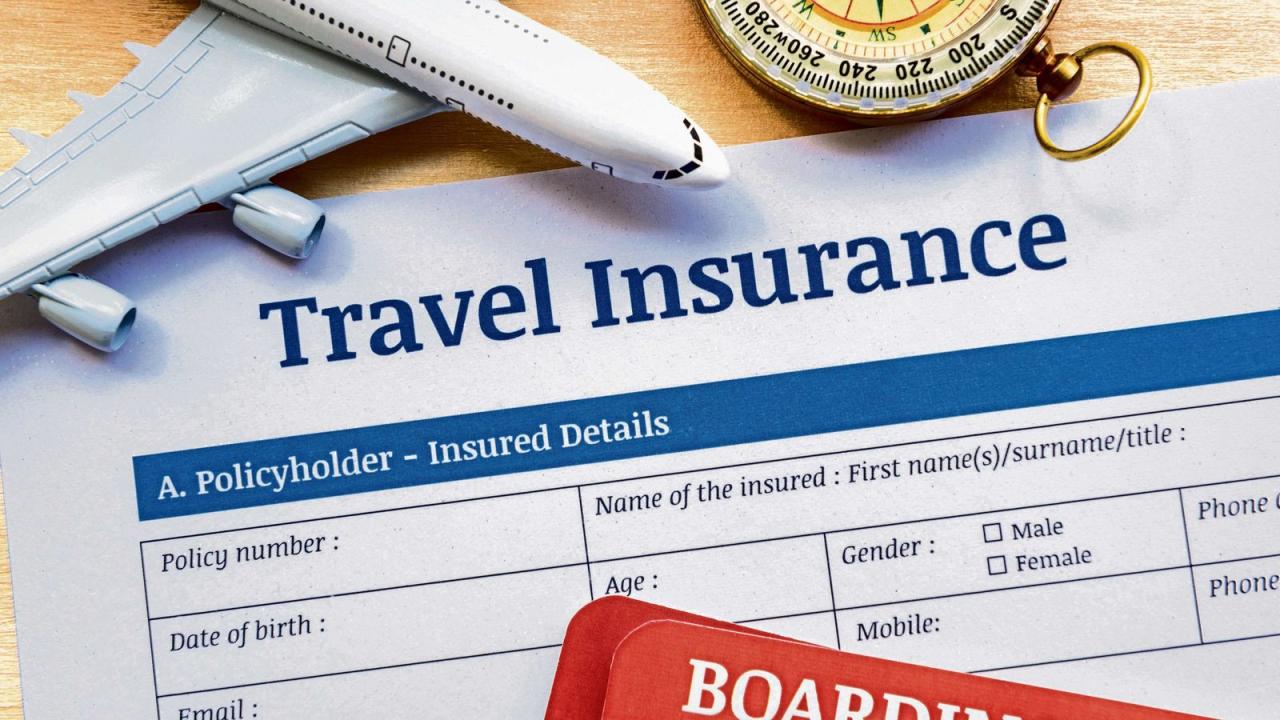
While trip insurance offers valuable protection, it’s crucial to understand that it doesn’t cover every eventuality. Trip insurance policies often contain exclusions and limitations, which are conditions that may prevent you from receiving benefits for certain events or expenses.
Pre-Existing Conditions
Trip insurance policies generally do not cover medical expenses related to pre-existing conditions, which are health issues you had before purchasing the policy. This exclusion is in place to protect insurers from covering potentially expensive claims related to ongoing health problems. If you have a pre-existing condition, you may need to purchase a specialized policy that specifically covers those conditions.
Risky Activities
Trip insurance policies often exclude coverage for activities considered high-risk, such as extreme sports, scuba diving, and skydiving. These activities carry a higher risk of injury or death, which insurers may not be willing to cover. If you plan to engage in any risky activities during your trip, it’s essential to check your policy carefully to ensure you have adequate coverage.
Examples of Exclusions
- Acts of War or Terrorism: Most trip insurance policies exclude coverage for events related to war or terrorism. This is because these events are unpredictable and often result in significant losses, which insurers may not be able to adequately cover.
- Natural Disasters: While some trip insurance policies may offer limited coverage for natural disasters, such as earthquakes or hurricanes, they often have specific exclusions and limitations. For example, a policy may exclude coverage for damages caused by flooding or volcanic eruptions.
- Personal Negligence: Trip insurance policies typically do not cover losses resulting from your own negligence. For instance, if you lose your belongings due to carelessness, you may not be eligible for reimbursement.
Importance of Reading Policy Terms and Conditions
Understanding the exclusions and limitations of your trip insurance policy is essential to ensure you are adequately protected. It’s crucial to read the policy terms and conditions carefully before purchasing coverage. Pay attention to the specific language used, as it can have significant implications for your claim. If you have any questions or concerns, contact your insurance provider for clarification.
How to File a Claim
Filing a claim with your trip insurance provider is generally straightforward, but it’s important to understand the process and the required documentation. Following the proper procedures will ensure your claim is processed efficiently and you receive the compensation you are entitled to.
Steps Involved in Filing a Claim
The specific steps involved in filing a claim may vary slightly depending on your insurance provider. However, the general process typically includes the following:
- Contact Your Insurance Provider: Immediately notify your insurance provider about the event that triggered your claim. This could be a medical emergency, flight cancellation, lost luggage, or other covered event. Be prepared to provide basic details about your trip, the incident, and your contact information.
- File a Claim: Your insurance provider will provide you with a claim form or instructions on how to file a claim online. Complete the form accurately and thoroughly, providing all the necessary information about the incident and your expenses.
- Gather Supporting Documentation: Documentation is crucial for supporting your claim. This might include:
- Airline tickets or other travel itineraries
- Medical bills or receipts for medical expenses
- Police reports (if applicable)
- Photos or videos of damaged luggage or other property
- Confirmation of cancellation fees or other expenses
- Submit Your Claim: Once you have completed the claim form and gathered all necessary documentation, submit your claim to your insurance provider. Follow their instructions carefully to ensure your claim is processed promptly.
- Claim Review and Processing: Your insurance provider will review your claim and supporting documentation. They may request additional information or documentation if necessary. The review and processing time can vary depending on the complexity of the claim.
- Compensation: If your claim is approved, your insurance provider will provide you with compensation for covered expenses. The amount of compensation will depend on the terms of your policy and the nature of your claim.
Required Documentation and Information
To file a claim, you will need to provide your insurance provider with specific documentation and information. This may include:
- Your Policy Information: Provide your policy number, the dates of your trip, and any other relevant policy details.
- Details of the Incident: Clearly describe the event that triggered your claim, including the date, time, and location. Provide any relevant details, such as the cause of the incident, the names of individuals involved, and any witness information.
- Supporting Documentation: Gather all relevant supporting documentation, such as receipts, medical bills, airline tickets, or police reports.
- Contact Information: Provide your current contact information, including your phone number, email address, and mailing address.
Process for Receiving Compensation
Once your claim is approved, your insurance provider will process your compensation. The process for receiving compensation may vary depending on your insurance provider and the nature of your claim. However, you can expect to receive:
- Direct Payment: Your insurance provider may directly pay for covered expenses, such as medical bills or cancellation fees.
- Reimbursement: You may need to pay for covered expenses upfront and then submit receipts to your insurance provider for reimbursement.
- Payment Method: Compensation is typically paid by check, direct deposit, or other methods depending on your insurance provider’s policies.
Alternatives to Trip Insurance
While trip insurance provides comprehensive coverage for various travel risks, alternative options exist to protect yourself. These alternatives may offer specific protection or a more limited scope of coverage, but they can be valuable for budget-conscious travelers or those seeking targeted protection.
Credit Card Travel Insurance
Many credit cards offer travel insurance as a benefit. This coverage can vary significantly based on the card issuer and type of card.
- Benefits: Credit card travel insurance typically includes coverage for trip cancellation or interruption, lost or stolen baggage, and medical emergencies. Some cards may also offer rental car insurance or travel accident insurance.
- Limitations: Coverage is usually limited to the amount of the purchase made with the credit card. Additionally, there may be pre-existing conditions, age restrictions, or other limitations that affect eligibility.
- Example: A traveler using a credit card to book a flight and hotel may receive automatic coverage for trip cancellation, interruption, and lost baggage.
Travel Protection Plans Offered by Airlines or Hotels
Some airlines and hotels offer travel protection plans that provide specific coverage for travel risks. These plans may cover trip cancellation, interruption, or medical emergencies.
- Benefits: Travel protection plans often offer more comprehensive coverage than credit card travel insurance, including benefits like travel delays or baggage delays. They may also provide additional services, such as 24/7 emergency assistance or travel assistance.
- Limitations: The coverage provided by travel protection plans varies widely, and the plans may not be as comprehensive as standalone trip insurance. The cost of these plans can also be significant.
- Example: A traveler booking a flight with a specific airline may be offered a travel protection plan that covers trip cancellation, interruption, and medical emergencies.
Tips for Safe and Secure Travel
Planning and preparing for a safe and secure trip is crucial for ensuring a memorable and enjoyable travel experience. It involves addressing various aspects, from passport and visa requirements to health considerations and personal security measures. By taking the necessary steps, travelers can mitigate risks and maximize their safety throughout their journey.
Passport and Visa Requirements
It is essential to verify and fulfill all passport and visa requirements for your destination country. Passport validity, visa applications, and necessary travel documents should be reviewed well in advance of your departure date.
- Ensure your passport is valid for at least six months beyond your intended stay. Some countries may require longer validity periods.
- Check if you need a visa to enter your destination country and apply well in advance, as visa processing times can vary.
- Make copies of your passport and visa, keeping one copy separate from your original documents.
Health Considerations
Prioritizing your health before and during your trip is essential. Consulting your healthcare provider for recommended vaccinations, travel insurance coverage, and any necessary medications is crucial.
- Consult your doctor about recommended vaccinations and any necessary medications for your destination.
- Ensure you have travel health insurance that covers medical emergencies and evacuations.
- Pack a small first-aid kit with essential medications and over-the-counter remedies.
- Be aware of potential health risks in your destination, such as mosquito-borne diseases, food safety, and water quality.
Personal Security Measures
Personal security measures are crucial for protecting yourself from theft, scams, and other risks.
- Keep your valuables secure and avoid displaying excessive amounts of cash.
- Be aware of your surroundings and trust your instincts. If something feels off, it probably is.
- Avoid walking alone at night in unfamiliar areas, especially if you are a woman.
- Keep your passport, credit cards, and other important documents in a secure location.
- Use strong passwords for online accounts and avoid using public Wi-Fi for sensitive transactions.
Resources and Additional Information
Seeking comprehensive information on trip insurance and travel safety is essential for informed decision-making. This section provides a list of reputable sources that can offer valuable insights and guidance.
Government Travel Advisories
Government travel advisories provide crucial information on the safety and security of destinations worldwide. These advisories are regularly updated based on current events and geopolitical situations.
- United States Department of State: The U.S. Department of State’s Bureau of Consular Affairs offers travel advisories for every country, outlining potential risks and safety concerns. They also provide information on passport and visa requirements, emergency contact details, and consular services. [Link: https://travel.state.gov/content/travel/en/traveladvisories.html]
- Canadian Travel Advisory Service: The Government of Canada’s Travel Advice and Advisories website offers comprehensive information on travel safety and security for destinations around the world. It includes advisories, security updates, and destination-specific information. [Link: https://travel.gc.ca/travelling/advisories]
- United Kingdom Foreign, Commonwealth and Development Office: The FCDO’s travel advice website provides detailed information on the safety and security of destinations worldwide. It includes country-specific information, travel warnings, and safety tips. [Link: https://www.gov.uk/foreign-travel-advice]
Travel Safety Organizations
Travel safety organizations specialize in providing resources, tips, and advice for safe and secure travel. They offer valuable insights on potential risks, preventative measures, and emergency preparedness.
- International SOS: A global medical and security assistance company that provides comprehensive travel safety and security services. They offer a wide range of resources, including destination-specific information, travel risk assessments, and emergency medical assistance. [Link: https://www.internationalsos.com/]
- Global Rescue: A membership-based organization that provides medical and security evacuation services worldwide. They offer travel risk assessments, safety advice, and emergency response services. [Link: https://www.globalrescue.com/]
- Travelers Aid International: A non-profit organization that provides assistance to travelers in need. They offer a range of services, including emergency travel assistance, crisis support, and travel safety resources. [Link: https://www.travelersaid.org/]
Major Insurance Providers
Major insurance providers offer a variety of trip insurance plans, each with its own coverage options and limitations.
- Travel Guard: A leading provider of travel insurance plans, offering a wide range of coverage options, including medical expenses, trip cancellation, and baggage loss. [Link: https://www.travelguard.com/]
- Allianz Travel Insurance: A global insurance company that offers comprehensive travel insurance plans, including medical expenses, trip cancellation, and baggage loss. [Link: https://www.allianztravelinsurance.com/]
- World Nomads: A travel insurance company that specializes in providing coverage for adventure travelers and backpackers. They offer a variety of plans with different levels of coverage. [Link: https://www.worldnomads.com/]
Final Conclusion
In the ever-evolving landscape of travel, trip insurance stands as a vital tool for navigating the unexpected. By understanding the nuances of coverage, comparing plans, and taking proactive steps to protect yourself, you can ensure a smoother and more enjoyable travel experience. Whether you’re embarking on a solo backpacking adventure or a family vacation, investing in trip insurance empowers you to embrace the journey with confidence, knowing that you have a reliable safety net to fall back on should the unexpected occur.









